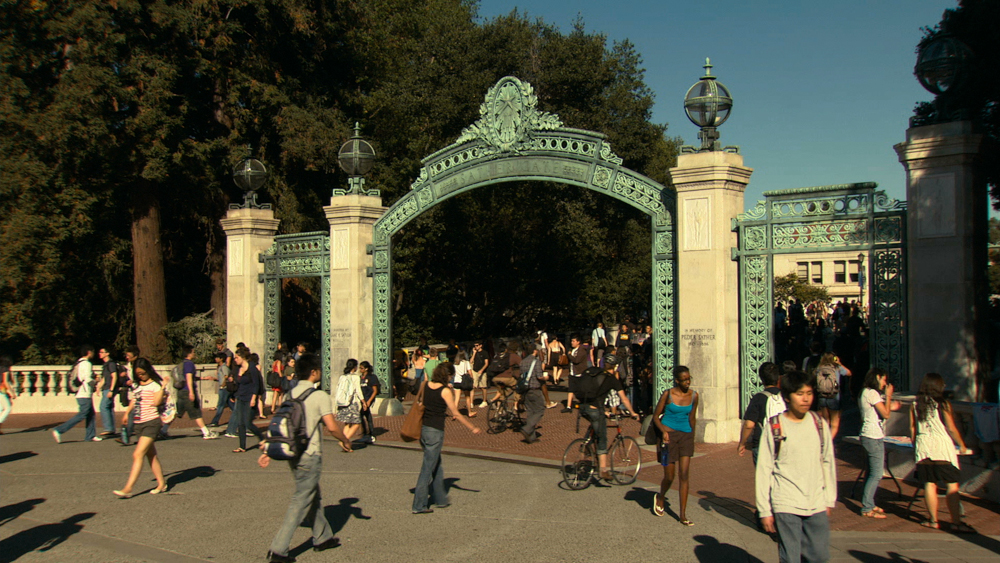Postdocs at Stanford have expressed solidarity with University of California (UC) academic workers amid the UC workers’ ongoing strike.
Over 100 Stanford affiliates, most of them postdocs, signed an open letter calling on the UC Office of the President (UCOP) to bargain in good faith so that “the parties can reach fair agreements as quickly as possible.”
“[We] are concerned that the University of California’s unlawful behavior at the bargaining table threatens to disrupt our colleagues’ ability to meet our shared commitment to research across academic disciplines,” read the letter, which was sent to UC President Michael Drake ’74 and Provost and Executive Vice President for Academic Affairs Michael Brown on Nov. 21. UCOP spokesperson Ryan King responded to other requests for comment from The Daily in an email but did not address questions on the letter.
The UC academic workers’ strike began on Nov. 14 and spans all UC campuses and the UC-managed Lawrence Berkeley National Laboratory, which is affiliated with the U.S. Department of Energy’s Office of Science. With around 48,000 workers striking, organizers have called it the largest strike of academic workers in higher education in U.S. history.
Tarini Hardikar, a chemistry graduate student at UC Berkeley and member of the Student Researchers United (SRU-UAW) bargaining team, said that UC has been committing unfair labor practices (ULP), which prompted the UC workers to go on a ULP strike.
As of Dec. 8, Fair UC Now, the UC workers’ bargaining and strike information website, listed 35 ULP charges filed or pending against UC by the United Auto Workers (UAW) unions representing the UC workers. The listed charges include failure to provide necessary information for bargaining proposals and unilateral changes to compensation, and of the ones that were filed after the strike began, most allege union intimidation by UC.
King wrote that the UCOP does not agree with the UAW’s ULP charges. “We disagree with their claims and note that to date there has been no finding of wrongdoing by the PERB [the California Public Employment Relations Board] against the University,” King wrote, citing that the PERB has “not fully adjudicated” any of the charges.
King did not respond to a request for comment on whether the UCOP disagrees with the claims in all the charges.
The UC workers are demanding fair compensation, sustainable transit benefits and improvements to childcare, equity for international scholars, job security and accessibility.
UAW Local 5810 announced on Nov. 29 that UC postdocs and academic researchers had reached tentative agreements on contracts. The postdocs and academic researchers are still on strike in sympathy with academic student employees and student researchers and through the ongoing ratification process.
Hardikar called the tentative agreement an “incredible win” for postdocs. In addition to compensation that addresses the cost of living, the contract proposal includes improvements to parental leave and childcare.
She said she hopes the strike has “set the tone going forward for what it’s like to have a fair workplace in higher education and academia.”
Isabella Arzeno-Soltero ’12 M.S. ’13, a Stanford civil and environmental engineering postdoc who did her Ph.D. and a postdoc at UC schools, signed the open letter. She said that in general she is “happy that they could reach this preliminary agreement, even if there’s always room for improvement.” She said that these agreements “go a long way in retaining scholars,” especially scholars from underrepresented backgrounds.
Some Stanford postdocs said the strike reflects broader patterns in the difficulties of academic labor.
Menglan Xiang, a Stanford pathology postdoc who signed the letter, said that she thinks academic laborers are generally overworked and “not compensated enough for the work they do.” She said that the publications that come out of academic researchers’ work form the “bedrock” for universities’ branding and appeal to faculty and prospective students.
Mia de los Reyes, a postdoc in physics at Stanford who helped draft the letter, said that postdocs are “intimately familiar with poor working conditions in academia,” citing Stanford postdocs’ experiences with a high cost of living and lack of job security.
“Our colleagues and our friends at UC schools are facing very similar issues and have the chance to fight to better their working conditions,” de los Reyes said. “I think that’s something that resonates with a lot of us.”
Stanford earth system science postdoc Alex Jaffe, who did a Ph.D. and interim postdoc at Berkeley and also helped draft the letter, agreed. Jaffe said that the issues that UC postdocs are fighting for are “universal to postdocs across the country.”
Some Stanford postdocs joined the UC workers on the picket line: Xiang, de los Reyes and Jaffe joined picket lines at UC Berkeley.
Xiang said she decided to support the UC workers because the situation resonated with her, citing high rent-to-income ratios as a shared difficulty. She said that the academic workers at Berkeley welcomed the supporters from Stanford.
“I just want to show solidarity and support for our colleagues there,” Xiang said.
